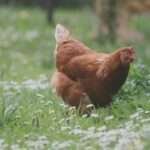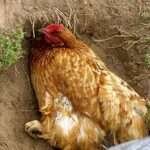The Benefits and Considerations of Keeping Chickens in Your Garden
Raising chickens has moved beyond traditional coops and has found a new frontier—the garden. The synergy between gardens and chickens has become a trending phenomenon, where these feathered foragers play an essential role in both nurturing the land and benefiting from its abundance. In this article, we delve into the world of garden-chicken integration, exploring the remarkable benefits of having chickens in your garden while addressing the potential challenges and offering strategies for maintaining harmony.
Pest Control: Nature’s In-House Pest Managers
One of the most significant advantages of introducing chickens into your garden is their natural pest management prowess. Chickens are skilled foragers, and their keen eyes and scratching behavior make them effective in controlling pests that often plague gardens. Insects, such as beetles, caterpillars, and spiders, as well as slimy invaders like slugs and snails, become prime targets for these vigilant feathered workers. By allowing chickens to roam freely in your garden, you create an in-house pest control team that reduces the need for chemical interventions.
Chickens’ instinctual behavior not only helps eradicate unwanted insects but also disrupts their breeding cycles. As chickens scratch and peck at the soil, they uncover hidden pests and devour their eggs, significantly curbing their population growth. The result? A healthier garden with fewer pests wreaking havoc on your plants.
Soil Enrichment: Garden Tillers and Fertilizer Producers
Chickens are nature’s garden tillers, equipped with an innate ability to turn over soil as they scratch and peck. This behavior serves as an invaluable service in your garden, as it helps aerate the soil, improve drainage, and expose weed roots. The constant scratching also exposes seeds to the elements, promoting germination and enhancing the growth of desirable plants.
Furthermore, chickens contribute to soil fertility through their droppings. Rich in nitrogen and other essential nutrients, chicken manure acts as a natural fertilizer, enriching the soil and promoting plant health. However, it’s essential to manage this resource carefully to prevent over-fertilization and maintain a balanced nutrient profile.
As we journey deeper into the article, we’ll explore strategies to address potential drawbacks of having chickens in the garden while emphasizing the numerous benefits that these feathery companions bring to your green sanctuary.
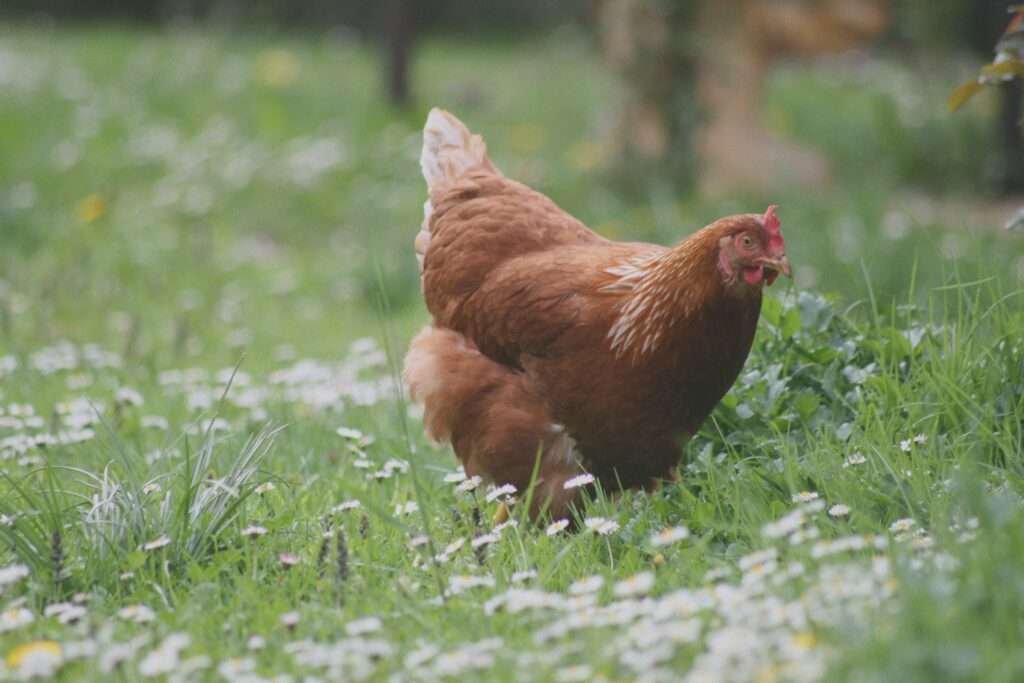
Balancing the Pros and Cons of Keeping Chickens in Your Garden
While the advantages of having chickens in your garden are undeniable, it’s crucial to address potential challenges to ensure a harmonious coexistence. Chickens’ natural behaviors can inadvertently lead to damage, such as eating herbs, uprooting plants, and disturbing the delicate balance of the garden ecosystem.
To strike a balance, consider implementing these strategies:
a. Protect Vulnerable Plants:
Identify plants that chickens are particularly drawn to and protect them with physical barriers or netting. This allows you to safeguard delicate herbs and ornamentals from enthusiastic pecking.
b. Designated Chicken-Free Zones:
Designate specific areas of your garden as off-limits to chickens. This can be achieved by creating enclosed sections or using portable fencing to restrict their access to sensitive plantings.
c. Rotate Garden Access:
Implement rotational grazing practices by periodically moving chickens to different sections of the garden. This prevents overgrazing and allows damaged areas to recover.
Fostering a Thriving Garden-Chicken Coexistence:
Creating a garden that thrives with the presence of chickens requires thoughtful planning. Consider the following tips:
a. Chicken-Friendly Plants:
Incorporate chicken-friendly plants that offer both aesthetic appeal and edible benefits for your flock. Examples include marigolds, nasturtiums, and sunflowers.
b. Mulching:
Apply mulch around plants to minimize soil disruption caused by scratching. Mulch also helps retain moisture and suppress weeds.
c. Strategic Garden Layout:
Position plants that are more resilient to chicken foraging closer to where chickens roam, and place more delicate plants in designated chicken-free zones.
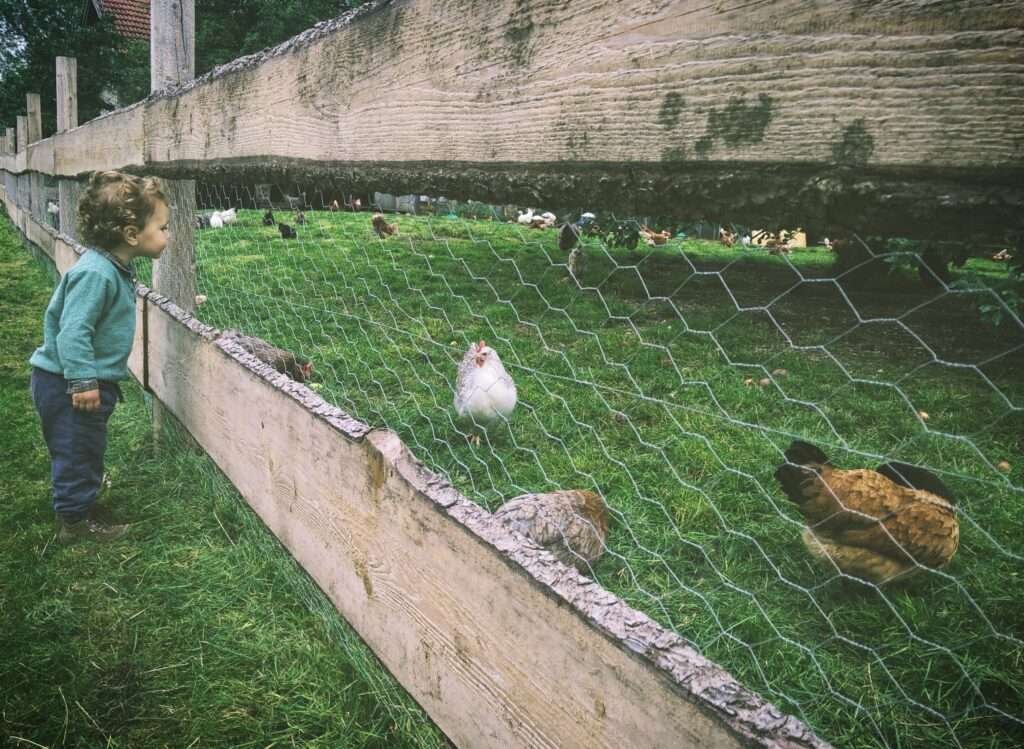
Beneficial Worms and Garden Delights: A Harmonious Balance:
Chickens’ voracious appetite for insects can sometimes lead to unintended consequences, such as consuming beneficial earthworms. To strike a balance, consider adding supplemental feed to ensure that chickens don’t solely rely on worms for nutrition. This approach helps maintain the worm population while allowing chickens to enjoy their natural foraging behavior.
As we explore the delicate balance between garden and chickens, the next section dives into the fascinating connection between mental stimulation and chickens’ behaviors, shedding light on how the garden offers much more than sustenance—it offers enrichment for their minds and bodies.
Mental Stimulation for Keeping Chickens In Your Garden
The garden serves as a captivating playground for chickens, offering them more than just a source of food. Chickens are naturally curious and inquisitive creatures, and the garden environment provides them with endless opportunities for mental stimulation. As they scratch, peck, and explore the earth, they engage in activities that mirror their natural behaviors in the wild.
Engaging in these behaviors has several benefits for chickens:
a. Mental Enrichment:
The act of scratching and pecking encourages mental engagement, preventing boredom and promoting cognitive development.
b. Physical Exercise:
Foraging and exploring require physical effort, contributing to overall fitness and well-being.
c. Natural Dust Bathing:
Chickens often indulge in dust bathing, rolling in dry soil to clean themselves and remove parasites. The garden environment offers ample space for this vital grooming behavior.
By allowing chickens to interact with the garden, you’re not only enriching their lives but also enhancing their overall health and vitality.
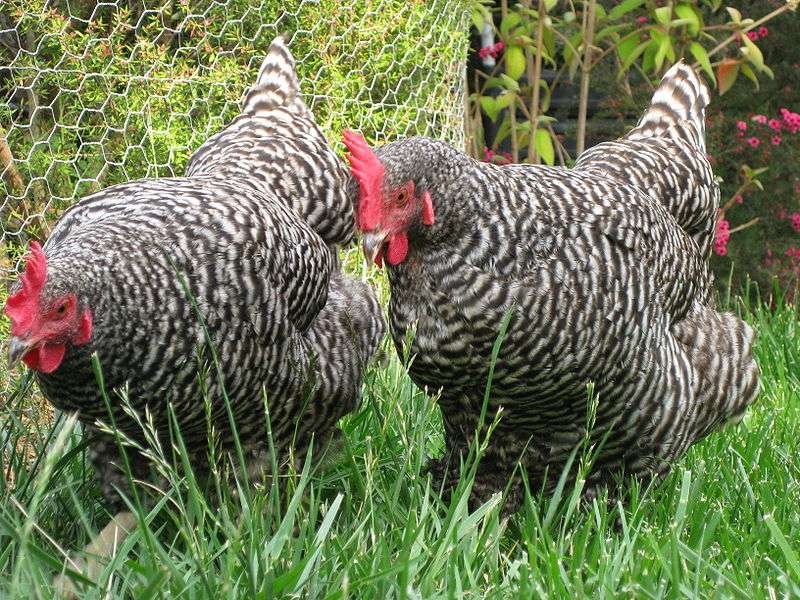
Beyond Functional Benefits: The Joy of Garden-Chicken Connection
While the functional benefits of having chickens in your garden are substantial, there’s an intangible aspect that brings joy and fulfillment to the experience. Many gardeners find a sense of companionship and connection as they observe their chickens interacting with the plants, foraging for treats, and enjoying the natural world. This connection adds a layer of depth to the garden, fostering a harmonious relationship between humans, nature, and animals.
Designing a Chicken-Friendly Garden: Strategies and Tips
Designing a garden that caters to both plants and chickens requires thoughtful planning. Here are some strategies to create a chicken-friendly garden:
a. Pathways and Space:
Include designated pathways to guide chicken movement and prevent excessive trampling of delicate areas.
b. Coop Integration:
Position your coop strategically to allow easy access for chickens to and from the garden while minimizing potential damage.
c. Plant Selection:
Choose a variety of plants that offer shade, shelter, and food sources for chickens.
d. Water Sources:
Ensure access to fresh water within or near the garden area to keep chickens hydrated.
Lessons from Experienced Garden-Chicken Keepers:
Real-life experiences from seasoned gardeners who’ve successfully integrated chickens into their garden can provide valuable insights. Here are some lessons:
a. Observation: Observe your chickens’ behavior to understand their preferences and adjust your garden layout accordingly.
b. Trial and Error: Be open to experimentation and adjust your strategies based on what works best for your garden and flock.
c. Flexibility: Gardens evolve, and so do the dynamics of your flock. Stay adaptable and willing to make changes as needed.
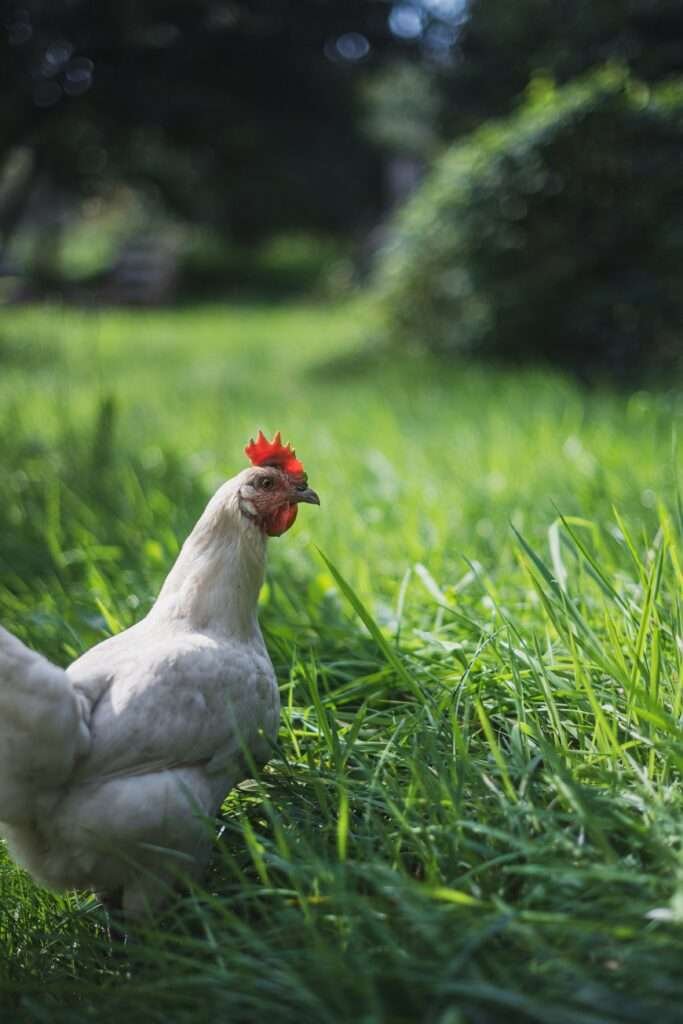
Keeping Chickens in your Garden
The garden-chicken relationship is a dynamic one that offers a multitude of benefits beyond the functional. While there are challenges to navigate, the rewards—both tangible and intangible—are worth the effort. By carefully managing your garden and fostering an environment that supports both plant and poultry life, you create a harmonious ecosystem where both thrive and contribute to the beauty and vibrancy of your outdoor sanctuary.

